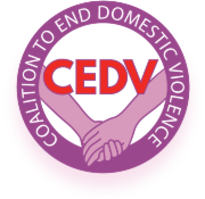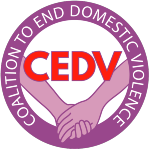PRESS RELEASE
Contact: Rebecca Stewart
Telephone: 513-479-3335
Email: info@EndToDV.org
‘Insult’ to Battered Persons: VAWA’s Coercive Control Provisions Will Sideline Victims of Physical Violence
WASHINGTON / February 17, 2022 – The Violence Against Women Act bill, recently introduced in the Senate, seeks to expand the definition of domestic violence to include “coercive control.” (1) These changes will divert limited resources away from victims of physical violence and infringe on protected free speech. The Coalition to End Domestic Violence calls on lawmakers to remove the controversial language from the VAWA bill.
The new VAWA bill proposes a dramatic expansion of the definition of “domestic violence” for the provision of victim services. If approved, domestic violence would include coercive control, which is defined as “a pattern of any other coercive behavior committed, enabled, or solicited to gain or maintain power and control over a victim, including verbal, psychological, economic, or technological abuse.”
The bill does not define or explain key terms seen in its definition:
- “Pattern” – Does calling one’s partner “lazy” three times over 10 years constitute a pattern?
- “Enabled” – If a neighbor overhears arguments, does the person’s failure to call the police – which serves to enable the problem — turn that person into an actual abuser?
- “Verbal” – Does verbal abuse include spousal “nagging”?
These vague and overly broad terms are certain to encroach on constitutionally protected free speech (2).
The Centers for Disease Control reports that each year, there are 7.7 million victims of partner physical violence, sexual violence, or stalking. In contrast, there are nearly four times as many victims of coercive control: 30.0 million persons, a majority of whom are males (3). VAWA’s proposed definitional expansion would marginalize the victims of physical violence by forcing them to compete for limited services.
The Congressional Research Service has cautioned against broadening VAWA’s definition of domestic violence: “some argue that a violent physical act is qualitatively different from other forms of abuse such as economic abuse, and legal definitions should reflect that distinction. Further, defining domestic violence as a pattern of behavior seemingly excludes isolated domestic violence incidents that do not involve a pattern of behavior.” (4).
Domestic violence authority Erin Pizzey has warned darkly, “To say emotional abuse is as bad as violence insults every battered wife.” (5) The VAWA bill represents a betrayal of victims of partner violence (6). Lawmakers should ensure the removal of “coercive control” provisions from the Violence Against Women Act.
Links:
- https://www.feinstein.senate.gov/public/_cache/files/3/9/39a64d5a-0551-4b9d-9814-521b9af00a18/E0B849C39D8A38B26A503509BD6824E8.vawa-reauthorization-act-of-2022.pdf Section 2.
- https://scholarship.law.duke.edu/cgi/viewcontent.cgi?article=4065&context=dlj
- https://www.cdc.gov/violenceprevention/pdf/nisvs-statereportbook.pdf Tables 5.8, 5.10, 5.14, and 5.16.
- https://crsreports.congress.gov/product/pdf/R/R46742#:~:text=Introduction-,The%20Violence%20Against%20Women%20Act%20(VAWA%3B%20Title%20IV%20of%20P.L.,at%20the%20end%20of%20FY2018
- https://www.dailymail.co.uk/debate/article-2074284/Domestic-violence-To-say-emotional-abuse-bad-insults-battered-wife.html
- https://endtodv.org/camp/coercive-control/


